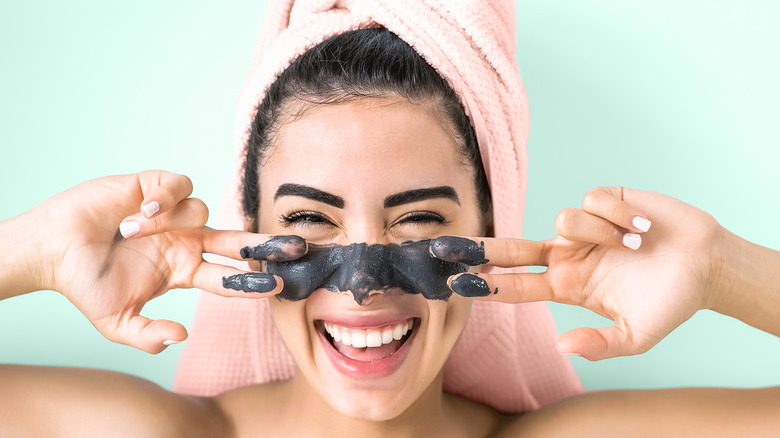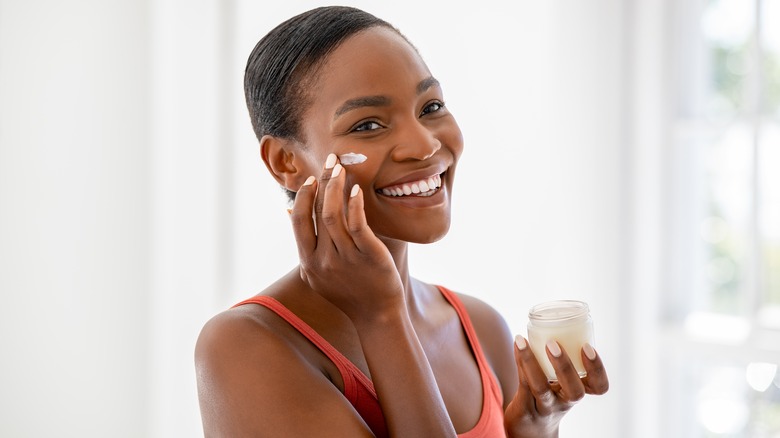What 'Dermatologist Tested' Actually Means (And Why It Shouldn't Always Be A Selling Point)
We all know how important skincare is for looking and feeling our best. Consequently, most of us regularly try out new products to make sure we're getting the most out of our skincare routines. Anyone who's tried a new product knows just how many factors you need to take into consideration to find the best choice for you. From seeking out cruelty-free products to building a skincare routine for dry skin, getting rid of inflammatory acne, or treating any one of the myriad other skin issues that affect us all, there's a lot to think about when picking out a new serum, cleanser, or moisturizer.
There's one thing, in particular, that we see on numerous product labels that typically makes us feel as though we're in safe hands. The phrase in question: "dermatologist tested." No one knows how to care for our skin better than a dermatologist, right? So why wouldn't we take their advice about which skincare products to add to our regular routines? This is the perfectly logical conclusion many of us jump to, and it's exactly what the folks creating the product labels in question want us to think. In reality, though, "dermatologist tested" doesn't actually mean what most of us presume it does.
The truth behind the 'dermatologist tested' label
When scanning product labels, "dermatologist tested" and "dermatologist approved" mean the same thing to most of us. But they're very different. Dr. Whitney Bowe, a board-certified dermatologist, explained why on the "Breaking Beauty" podcast (via Spotify). As she recalled, "I actually had a brand approach me, and they were like, 'Hey Dr. Bowe, could you test out this product for like a week and let us know what you think?' And, at the end of the week, I reached out and was like, 'Yeah, it's pretty drying; I think it has a drying alcohol in it as one of the top ingredients, and it's really not reacting well with my skin.'"
Dr. Bowe revealed, "And, they're like, 'that's okay; we just really needed you to test it because we needed to say 'dermatologist-tested' on the label.'" This is a seriously sneaky marketing trick, and sadly her experience isn't unique. According to fellow board-certified dermatologist Jessica Weiser, MD, FAAD, the "dermatologist tested" label simply "means that at least one dermatologist tested the product for one observable feature — safety, sensitivity, skin tone, etc."
As PopSugar notes, larger companies are generally more trustworthy when it comes to such claims. But, regardless of what it says on the packaging, you should always swatch new products on a small patch of skin before using them, or follow Dr. Weiser's guidance: "The best advice an individual patient can receive is from their own dermatologist after a thorough examination."

